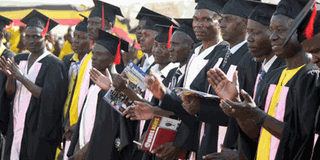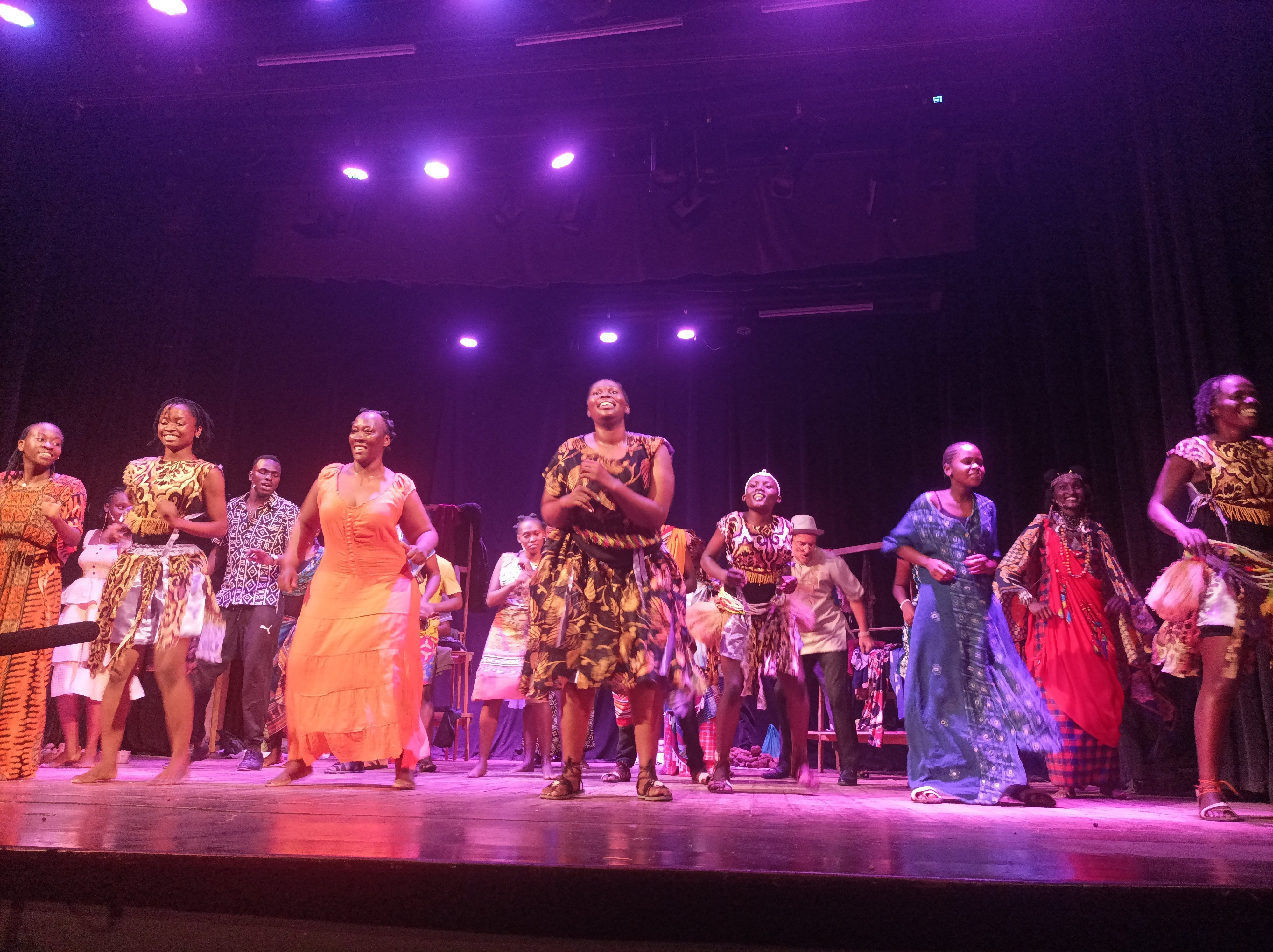Rehabilitating Prisoners Through Education

Inmates celebrate at the graduation ceremony at Luzira Prisons Upper Wing grounds when they were awarded certificates in entrepreneur skills from Makerere University Business School (MUBS). Photo by Abubaker Lubowa.
What you need to know:
They get in as criminals and liabilities to society but education turns many inmates into great assets.
Robert Kaka carries on as Master of Ceremony with the eloquence and flawlessness of a seasoned moderator. He speaks articulately, has good command of English, a strong sense of humour and a respectful tone.
The enthusiasm and smiles he embodies belie the yellow uniform he is putting on.
Kaka calls out 42 names of graduands to receive certificates in entreneurship. They stand up, fists clenched, punch the air and swagger onto the stage.
Joy and cheers on this graduation ceremony of 42 inmates have replaced the usually somber mood of Luzira Upper Prison. Prison education has been touted as the way to go in the rehabilitation process of in-mates.
“This is supposed to be a correction facility and not a place for confinement,” the Commissioner Rehabilitation, Uganda Prisons, David Nsarasata, noted at the function, adding that education is a human right which in-mates must enjoy.
“We have all wronged and committed crimes, but the difference is that some are caught while others walk scot-free,” he adds, drawing loud cheers and thunderous claps from the inmates donned in yellow. They have braved the scorching sun to witness a momentous occasion.
Prison education was introduced in 2000 with the primary level. Later, secondary and diploma levels were included.
Frank Baine, the Uganda Prisons spokesperson says the only qualifications are interest, willingness and being trainable.
Suicides, he says, are not a common problem in African prisons. He adds, “We must be pro-active and not wait for the problem to rise.”
“Education gives hope to those serving short sentences and those nearing the end of their sentences,” Baine said.
Patrick Mwase, a counsellor at the School of Psychology, Makerere University, agrees. “It gives prisoners hope that the cycle of violence and poverty they might be going through is coming to end,” he said.
Mwase said education can provide alternatives to crime and violence to prisoners.
The healing process empowers prisoners to cope with the challenges of prison life, and provides prisoners with answers to questions about their lives.
Pointing out one of the main causes of prison trauma as severity of prison authorities, Mwase said education can be critical in undoing the ills inflicted on prisoners.
Conditions, especially in a facility like Luzira Prison designed to house 600 inmates but currently holding over 2,800, can be nerve-wrecking and unbearable.
Denis Mujuni, an entreneurship and small business management graduate, said education had given him a sense of belonging and satisfaction. He adds: “I thought my life had come to an end but I will now use this education as a stepping stone to achieve greater things.”
Paul Nyende, a psychologist at Makerere University, says education provides prisoners with opportunities they may not have had in their free life. “Education makes prisoners feel positive about life as some may get opportunities they have missed,” he says.
Makerere University Business School, which sponsors the programme as part of its Corporate Social Responsibility, promised to bring women on board and include degrees on the programme.
But it has not been short of challenges for all the players involved. Baine says prisoners have a “difficult” mindset and that it is still challenging to attract the best lecturers to prisons.
Facilities like computer laboratories and libraries are hard to come by behind the high perimeter walls of the detention facility. Classes are conducted under squalid conditions.
Prison education has also been established as being cheaper than crime control. Mwase agreed with a study conducted by the US Department of Education which revealed that prisoners, who had classes in jail, are less likely to go back in prison within the first three years of release.
Counsellors established accumulated stress, low coping skills, long prison sentences, solitary confinement and severe conditions as the main causes of trauma amongst inmates.
Mwase said psycho-social counselling with anger management skills needs to be included to achieve all round success.
An aura of rehabilitation and reform has enveloped the expansive walls as Acholi prisoners, led by former LRA commander, Onen Kamdulu engage in the Bwola dance, present gifts to the guests and excitedly cheer on.
The Chief Guest, Internal Affairs Minister, Hillary Onek, offers a bull for the night-long celebrations, before Robert Kaka, draws the curtains down with a melodic rendition of Bette Midler’s classic, The Wind Beneath My Wings.




